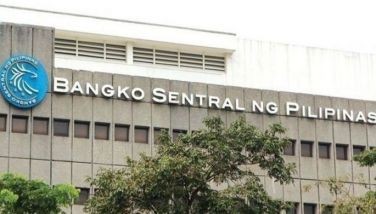Meralco accuses ERB, COA of ‘foul play’
December 7, 2002 | 12:00am
Fighting off a P28-billion refund order, Manila Electric Co., (Meralco) blamed the defunct Energy Regulatory Board (ERB) and Commission on Audit (COA) which, it said, misled them into believing the formula they have been using is allowed under the law.
Meralco lawyers led by retired Supreme Court Justice Camilo Quiason said it was "foul play" for both institutions to have allowed them in 1993 to use the rates they have adopted only to reverse themselves five years later, which became the basis for the alleged overcharging.
"It is foul play on the part of the ERB to lead Meralco, when it filed its rate application in 1993, to believe that the ERB recognized the Galveston formula, only to reverse itself in 1998," the Lopez-owned power firm stated in a 47-page motion for reconsideration.
As for COA, the country’s largest power distributor asserted: "It was foul for the COA, after leading Meralco to believe that it could use the Galveston formula, to reverse its stand, question the formula, and oppose Meralco’s application in 1998."
Quiason noted that when his client filed its rate application in 1993 using the formula – which included income taxes paid in the firm’s operating expenses – "it merely followed the ERB’s decisions, recognizing the use of said formula."
In fact, he pointed out that no less than the SC, which ordered Meralco to pay back its four million consumers the P0.167 centavos per kilowatthour it overcharged since February 1994, conceded that ERB approved the use of such scheme by three local electric utilities.
"The Honorable SC admitted that about the time Meralco filed its rate application, the ERB had authorized the Cotabato Light and Power Plant, Davao Light and Power Co. Inc. and San Fernando Electric Light and Power Co. to pass on to their customers the income taxes they had paid under a tax recovery clause," Quiason argued.
Meralco, seeking a reversal of the multi-billion-peso refund order, reiterated to the SC: "Briefly rephrased, the utility is allowed to recover the entire amount of income taxes it pays year after year, even if the amount doubles or triples."
Likewise, Meralco lawyers pointed out that even ERB’s successor, the Energy Regulatory Commission, "adheres to the principle that income tax is part of operating expenses" which is included in the Electric Power Industry Reform Act of 2001 (EPIRA) or RA 9136.
It added: "The ERC itself is fully convinced that the decision of its predecessor with respect to the treatment of income tax is wrong and refuses to adopt the same."
Meralco also pointed out that their return on rate base, "means net income after tax," as it insisted in including the income taxes it paid on its operating expenses, thereby passing the tax burden to the consumers, which the SC found to be unjust. The SC ruled that Meralco should not pass on to its consumers the income taxes it paid and include it in its operating expenses.
"Accordingly, the burden of paying income tax should be Meralco’s alone and should not be shifted to the consumers by including the same in the computation of its operating expenses."
The magistrates stressed that allowing Meralco to use such scheme would be a dangerous precedent as this would give other utility firms the "blanket authority" to follow suit.
"It may create an undesirable precedent and serve as blanket authority for public utilities to charge their income tax payments to operating expenses and unjustly shift the tax burden to the customer," a portion of the 20-page ruling read.
"In the cases at bar, Meralco has not justified why its income tax should be treated as an operating expense to enable it to derive a fair return for its services. The court cannot give in to the importunings of Meralco that we blindly apply the rulings of American courts on the treatment of income tax as operating expenses in rate regulation cases."
Meralco lawyers led by retired Supreme Court Justice Camilo Quiason said it was "foul play" for both institutions to have allowed them in 1993 to use the rates they have adopted only to reverse themselves five years later, which became the basis for the alleged overcharging.
"It is foul play on the part of the ERB to lead Meralco, when it filed its rate application in 1993, to believe that the ERB recognized the Galveston formula, only to reverse itself in 1998," the Lopez-owned power firm stated in a 47-page motion for reconsideration.
As for COA, the country’s largest power distributor asserted: "It was foul for the COA, after leading Meralco to believe that it could use the Galveston formula, to reverse its stand, question the formula, and oppose Meralco’s application in 1998."
Quiason noted that when his client filed its rate application in 1993 using the formula – which included income taxes paid in the firm’s operating expenses – "it merely followed the ERB’s decisions, recognizing the use of said formula."
In fact, he pointed out that no less than the SC, which ordered Meralco to pay back its four million consumers the P0.167 centavos per kilowatthour it overcharged since February 1994, conceded that ERB approved the use of such scheme by three local electric utilities.
"The Honorable SC admitted that about the time Meralco filed its rate application, the ERB had authorized the Cotabato Light and Power Plant, Davao Light and Power Co. Inc. and San Fernando Electric Light and Power Co. to pass on to their customers the income taxes they had paid under a tax recovery clause," Quiason argued.
Meralco, seeking a reversal of the multi-billion-peso refund order, reiterated to the SC: "Briefly rephrased, the utility is allowed to recover the entire amount of income taxes it pays year after year, even if the amount doubles or triples."
Likewise, Meralco lawyers pointed out that even ERB’s successor, the Energy Regulatory Commission, "adheres to the principle that income tax is part of operating expenses" which is included in the Electric Power Industry Reform Act of 2001 (EPIRA) or RA 9136.
It added: "The ERC itself is fully convinced that the decision of its predecessor with respect to the treatment of income tax is wrong and refuses to adopt the same."
Meralco also pointed out that their return on rate base, "means net income after tax," as it insisted in including the income taxes it paid on its operating expenses, thereby passing the tax burden to the consumers, which the SC found to be unjust. The SC ruled that Meralco should not pass on to its consumers the income taxes it paid and include it in its operating expenses.
"Accordingly, the burden of paying income tax should be Meralco’s alone and should not be shifted to the consumers by including the same in the computation of its operating expenses."
The magistrates stressed that allowing Meralco to use such scheme would be a dangerous precedent as this would give other utility firms the "blanket authority" to follow suit.
"It may create an undesirable precedent and serve as blanket authority for public utilities to charge their income tax payments to operating expenses and unjustly shift the tax burden to the customer," a portion of the 20-page ruling read.
"In the cases at bar, Meralco has not justified why its income tax should be treated as an operating expense to enable it to derive a fair return for its services. The court cannot give in to the importunings of Meralco that we blindly apply the rulings of American courts on the treatment of income tax as operating expenses in rate regulation cases."
BrandSpace Articles
<
>
- Latest
- Trending
Trending
Latest
Trending
Latest
Recommended





























